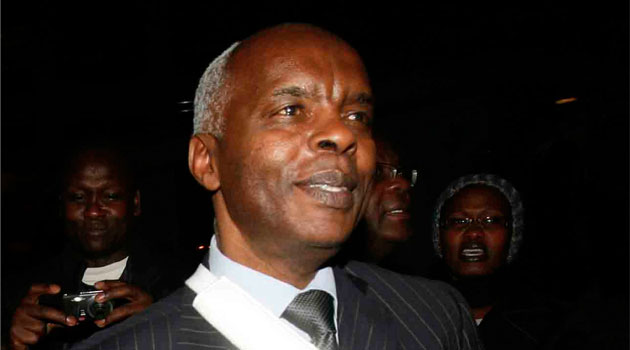
Gen Zs, you sting like Bees, you are worthy heirs of Dedan Kimathi
NAIROBI, Kenya, July 12 – Former Makueni Governor Kivutha Kibwana has expressed optimism for the future of Kenya after President William Ruto sacked the entire cabinet following pressure from Gen Zs.
In a statement on his X account, Kibwana praised the decision which he stated reflected the growing clamor for accountability and good governance.
“New Kenya, nothing less! A land where the citizen & the constitution are sovereign under God. Gen Zs, you sting like Bees. You worthy heirs of Dedan Kimathi whom you will bury in dignity.” noted Kibwana.
His message resonated with many, particularly the younger generation, who have been vocal about their desire for change and economic liberation. By invoking the legacy of Dedan Kimathi, a revered figure in Kenya’s fight for independence, Kibwana underscored the historical significance of the moment, calling on the youth to continue the struggle for a just and prosperous Kenya.
Kibwana’s reference to the “Third (Economic) Liberation” echoes a sentiment growing among Kenyans who see economic reforms as the next crucial step in the nation’s development. The concept of Ubuntu, emphasizing shared humanity and community, further reflects the collective aspirations for a united and equitable society.
“Asante. We can smell the Third (Economic) Liberation & Ubuntu,” Stated Kibwana
In announcing the changes on Thursday, President Ruto stated that Principal Secretaries will manage the respective ministries until a new Cabinet is named.
Ruto has pledged additional measures, indicating further government restructuring, which is likely to impact more inefficient officials.
The changes follow weeks of sustained pressure from Gen Z youths, who demanded an overhaul of the government, citing the failure of many Cabinet Secretaries.
What began as a rejection of the controversial Finance Bill 2024 quickly escalated into calls for a complete government overhaul, with the Gen Z youths now demanding, “Ruto Must Go.”
The protests ultimately led President Ruto to decline to sign the bill into law. The demonstrations, which saw tens of thousands of youths take to the streets, resulted in violent clashes with police forces, leading to tragic outcomes.
More than 40 protesters were killed, and over 300 others were injured in the worst police brutality seen in the country, sparking widespread condemnation both locally and internationally.
